Oceans cover more than 70% of our planet’s surface and play a critical role in shaping weather, regulating climate, and supporting life. But what if, in a single unimaginable event, the oceans suddenly evaporated into thin air? The disappearance of Earth’s vast water bodies would trigger a cascade of catastrophic consequences—reshaping landscapes, collapsing ecosystems, and making survival nearly impossible for humans and animals alike.
Why Oceans Matter
The oceans are more than just giant water reservoirs. They:
- Absorb and distribute heat, regulating Earth’s temperature.
- Provide the majority of the planet’s oxygen through phytoplankton.
- Serve as the foundation of global food chains.
- Influence rainfall patterns and freshwater availability.
Without them, Earth would become unrecognizable.
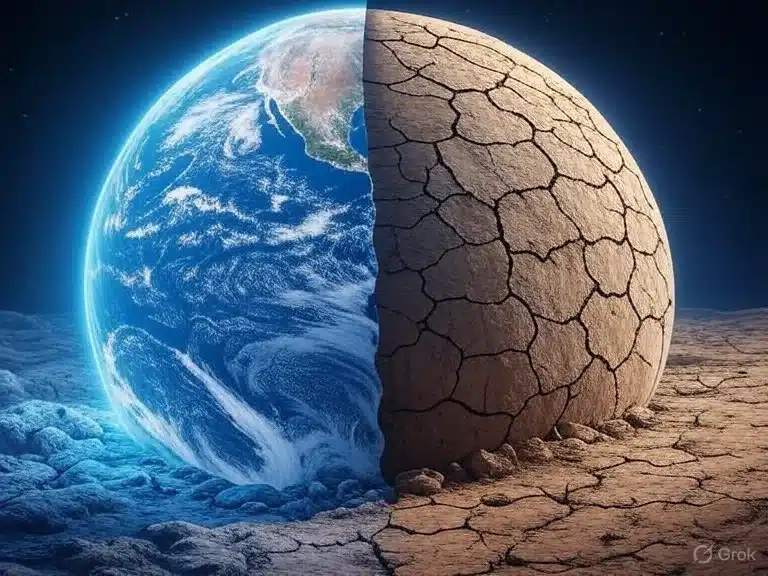
The Immediate Aftermath of Evaporation
If oceans vanished overnight, the immediate effect would be catastrophic.
- Atmosphere overload: All that water vapor would flood the skies, thickening the atmosphere.
- Runaway greenhouse effect: The trapped moisture would cause global temperatures to spike dramatically.
- Extreme storms: Super hurricanes and lightning storms would rage as the atmosphere struggles to stabilize.
This sudden vaporization would turn Earth into a chaotic pressure cooker.
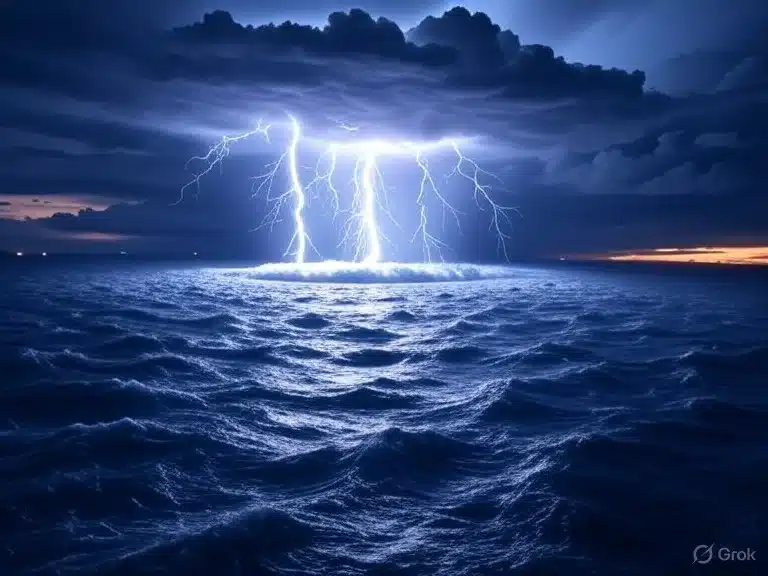
A Deadly Greenhouse Effect
The influx of vapor would initially make the planet hot and humid. However, within weeks to months, the excess water vapor would escape into space, leaving Earth dry and barren.
- Temperatures would soar like Venus, turning Earth into a scorched desert.
- The greenhouse gases released from dried seafloors (methane and CO₂) would accelerate warming.
- Life as we know it would collapse.
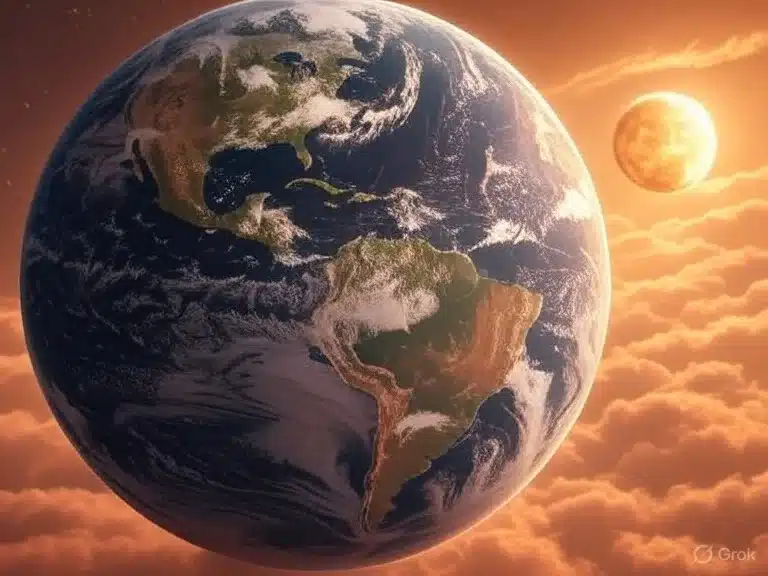
Ecosystems Collapse
The collapse of marine ecosystems would be swift and irreversible:
- Phytoplankton extinction: These microscopic organisms produce more than 50% of Earth’s oxygen. Their loss would suffocate life on land.
- Fish and marine mammals: Billions of species would die almost instantly.
- Food chains: Entire networks—from seabirds to humans—would collapse without seafood.
Forests and grasslands would also wither as rainfall patterns disappeared.
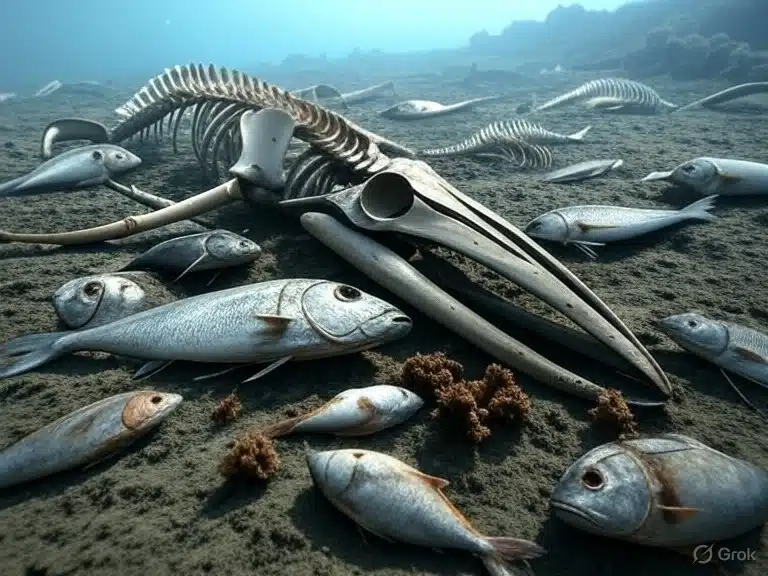
Landscapes Without Oceans
The disappearance of oceans would dramatically reshape Earth’s surface.
- Exposed seafloors: Once hidden landscapes like the Mariana Trench would now be visible, forming deep gorges and massive salt flats.
- Mountain-like ridges: Mid-ocean ridges would rise like endless rocky highways across the planet.
- Desertification: Entire continents would dry out, with sandstorms replacing rainfall.
Earth would look like a cracked, barren desert world with strange geological scars.
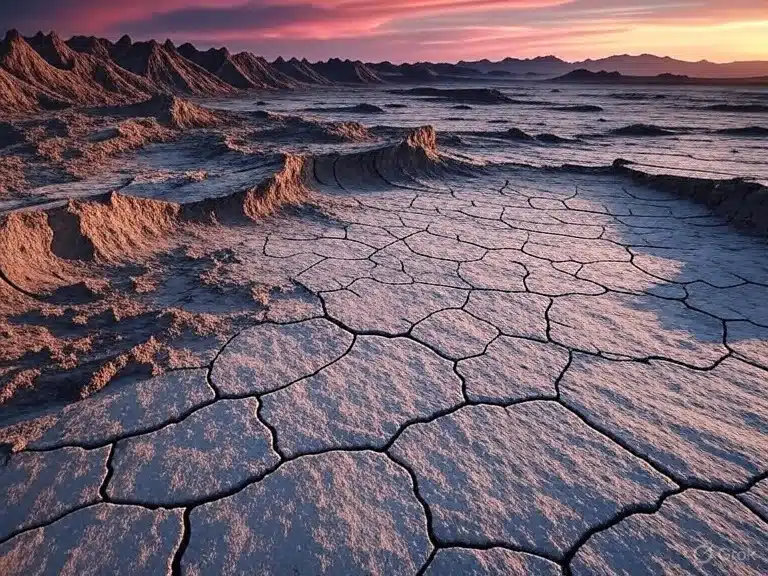
The End of Freshwater
With no oceans to evaporate and fuel the water cycle, rainfall would stop.
- Rivers and lakes would dry up.
- Glaciers would melt under rising temperatures but provide only short-lived water.
- Agriculture would collapse within weeks due to lack of irrigation.
Human civilization relies on freshwater sourced indirectly from the oceans. Without it, survival becomes impossible.
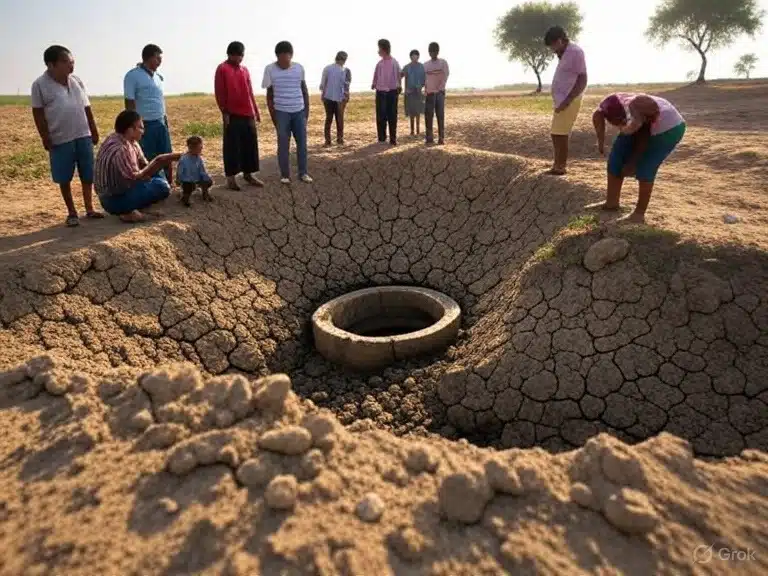
Human Survival Chances
Could humans adapt? The odds would be slim.
- Short-term survival: Underground bunkers or sealed habitats could provide temporary shelter.
- Water scarcity: Freshwater reserves would run out quickly without replenishment.
- Radiation exposure: Oceans also act as heat regulators; without them, radiation from the Sun would be more intense.
- Mass migrations: People might retreat to mountain caves, glaciers, or engineered domes.
In time, most of humanity would perish, leaving behind small groups in artificial environments.

Could Technology Save Us?
Theoretically, humanity might attempt to engineer artificial oceans or recycle water endlessly. Possibilities include:
- Massive desalination of underground reservoirs (though limited in supply).
- Atmospheric harvesting of water vapor before it escapes into space.
- Terraforming technology inspired by space colonization projects.
But these solutions would require global cooperation, massive energy, and decades of innovation—luxuries we wouldn’t have in such a rapid crisis.
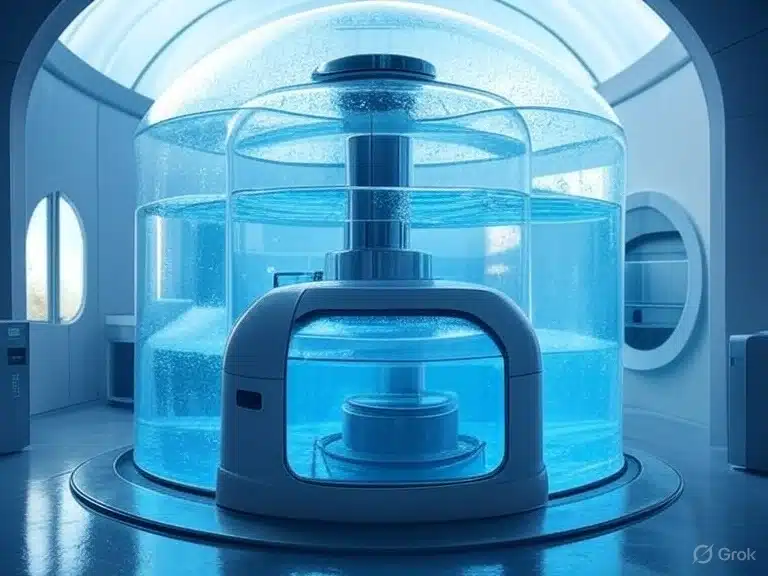
A Glimpse Into Earth’s Future?
Interestingly, some scientists believe Earth may one day lose its oceans naturally—over billions of years—as the Sun grows hotter and radiation slowly evaporates surface water. What we’re imagining here is a sudden, accelerated version of that distant future.
If this scenario ever unfolded quickly, Earth would become uninhabitable, pushing humanity to seek survival off-planet.

Conclusion
The sudden evaporation of Earth’s oceans would be one of the most catastrophic events in planetary history. From runaway greenhouse effects to the collapse of ecosystems and the death of freshwater cycles, life would be nearly impossible to sustain. While technology could prolong survival in artificial habitats, the Earth we know—blue, vibrant, and full of life—would be gone forever.
The oceans are not just vast water bodies; they are the heartbeat of our planet. Without them, Earth would lose its soul.

